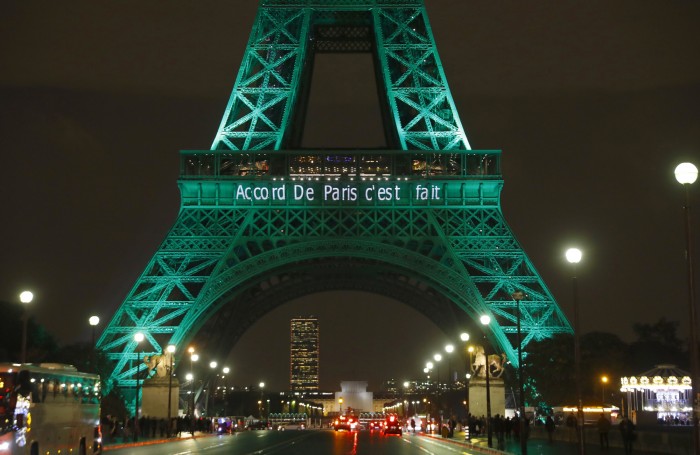The Troubling Road for Climate and Energy Under President Trump
Donald Trump has famously claimed that the “concept of global warming was created by and for the Chinese.” So what will his policies on energy and the climate look like?
He's publicly stated that he wishes to pull out of the Paris climate agreement. He plans to cut federal climate change funding. He wants to get rid of President Obama’s Clean Power Plan. And he’s infatuated with scrapping the Environmental Protection Agency. Sadly, such regressive policy measures really could play out.
The appearance of oil executives such as Harold Hamm and Forrest Lucas on a leaked shortlist of Trump’s for the positions of Secretary of Energy and Secretary of the Interior, respectively, is hardly surprising. But it does highlight that fossil fuels will take high priority for his administration.

The Economist suggests that we should expect to to see “swift moves to expand production of American gas, oil and coal.” Increased fracking activity, new oil drilling sites and some reinvigoration of the coal-mining industry are practically a given, it seems.
Actually repealing existing legislation on climate issues, such as the Clean Power Plan (which is currently held up in court), may yet prove a little difficult for Trump. Altering regulations is a lengthy procedure at the best of times, especially if the changes are based on opinions rather than evidence.
As for the Paris agreement, Science notes that he can’t withdraw from it until 2020. He could, though, simply decide that America would not meet its stated emissions commitments. Or, if he felt a flourish was needed, he could withdraw the U.S. from U.N. Framework Convention on Climate Change altogether, a process that could be complete within a year.
Perhaps more troubling for the rest of the world is the cash that was expected to flow from the U.S. to help battle climate change. Under the Obama administration, the nation had committed $800 million a year to the cause. Congress will have to agree to any cuts, but if that happens, developing countries are unlikely to meet their emissions targets.
Many of Trump’s campaign messages, then, may yet materialize. Whatever happens, as Climate Central ruefully points out, physics will continue to warm the planet irrespective of who was elected. For the next four years, the U.S. might do little to stand in its way.
(Read more: Science, The Economist, “Six Big Technology Questions for President Trump,” “The Paris Climate Pact Is in Effect, but It’s Not Enough”
Keep Reading
Most Popular
Large language models can do jaw-dropping things. But nobody knows exactly why.
And that's a problem. Figuring it out is one of the biggest scientific puzzles of our time and a crucial step towards controlling more powerful future models.
The problem with plug-in hybrids? Their drivers.
Plug-in hybrids are often sold as a transition to EVs, but new data from Europe shows we’re still underestimating the emissions they produce.
Google DeepMind’s new generative model makes Super Mario–like games from scratch
Genie learns how to control games by watching hours and hours of video. It could help train next-gen robots too.
How scientists traced a mysterious covid case back to six toilets
When wastewater surveillance turns into a hunt for a single infected individual, the ethics get tricky.
Stay connected
Get the latest updates from
MIT Technology Review
Discover special offers, top stories, upcoming events, and more.